
Introduction
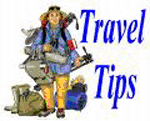
Read carefully this Uzbekistan Travel Tips about International Tourism in Uzbekistan, please.
AIRPORT
Arrival
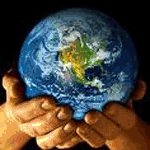
As guests of Uzbekistan, you will be requested to complete two customs declarations upon arrival in the country, usually at the airport. One of the declarations is kept during the entire stay in Uzbekistan. On departure, you will have to complete another declaration, and submit it together with the initial one to the customs officer.
There are no limitations on the amount of money allowed into Uzbekistan. Visitors should have less hard currency while departing than they indicated in the entry declaration. Items of considerable value, for example, jewelry, cameras, computers etc., should be noted on the declaration forms on entry.
All such items must be re-exported, otherwise import duties will be charged on travelers. The customs regulations clearly define the list of items which you may bring in the country and the list is almost identical to those in Western countries. It includes, inter alia, drugs, explosives, dangerous substances and weapons. Food products, such as fruit and vegetables, may be imported freely in reasonable quantities sufficient for personal consumption.
Unlike in some Islamic countries, alcohol drinks and tobacco products are allowed for import and fall under the same consumable quantity regulation. When entering airport facilities, all luggage go through X-ray devices.
Departure
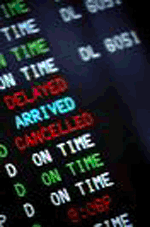 Items that visitors buy in Uzbekistan, such as products of handicraft, pottery and other recently manufactured products can be freely exported from the country. When you plan to take out of the country works of art or antiques, such as old rugs and/or suzannis (wall covers), books, weaponry (swords, knives, etc.), you may be required by customs to provide a license issued by the Uzbek Ministry of Culture. It is recommended to demand such a license directly from Sellers before you buy things.
Items that visitors buy in Uzbekistan, such as products of handicraft, pottery and other recently manufactured products can be freely exported from the country. When you plan to take out of the country works of art or antiques, such as old rugs and/or suzannis (wall covers), books, weaponry (swords, knives, etc.), you may be required by customs to provide a license issued by the Uzbek Ministry of Culture. It is recommended to demand such a license directly from Sellers before you buy things.
 Otherwise, unlicensed items may be confiscated by the customs authorities. In order for you to go unhampered through the Uzbek immigration authorities, you have to have a valid passport (its expiry date should not coincide with the period of stay in Uzbekistan) and a valid visa. Also, they may check your Registration.
Otherwise, unlicensed items may be confiscated by the customs authorities. In order for you to go unhampered through the Uzbek immigration authorities, you have to have a valid passport (its expiry date should not coincide with the period of stay in Uzbekistan) and a valid visa. Also, they may check your Registration.
Registration
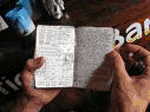 All foreigners are required to follow certain registration rules in Uzbekistan. These rules are supposed to help provide Uzbek authorities with data about the movement of foreign citizens in the country. Visitors have to register within three days of arrival and obtain a stamp of registration on their visa. As far as tourists are concerned, it is required to obtain a stamped receipt with dates of stay from the reception of the hotel; usually hotels do this automatically. Unregistered visitors may be subject to a fine or even prevented from leaving until all documents are properly done.
All foreigners are required to follow certain registration rules in Uzbekistan. These rules are supposed to help provide Uzbek authorities with data about the movement of foreign citizens in the country. Visitors have to register within three days of arrival and obtain a stamp of registration on their visa. As far as tourists are concerned, it is required to obtain a stamped receipt with dates of stay from the reception of the hotel; usually hotels do this automatically. Unregistered visitors may be subject to a fine or even prevented from leaving until all documents are properly done.
MONEY
Banking and currency regulations
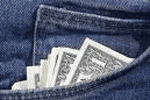 There is a number of Banks, including Government-owned, foreign and private ones, where you can cash your travelers checks or credit cards.
There is a number of Banks, including Government-owned, foreign and private ones, where you can cash your travelers checks or credit cards.
– NBU, National Bank of Uzbekistan has its branches in all provinces and major cities of Uzbekistan. Working hours are from 9.00a.m. to 6.00p.m. Visitors are usually received till 12.00p.m.
– National Bank of Uzbekistan for Foreign Economic Activities (NBU)
101, Amir Temur Str.
tel:+998-71-1375967, 341111
Normally, a commission from 2 to 5 per cent is charged. A fast and safe but rather expensive way of transferring cash to Uzbekistan is Western Union, with its office available at Business Bank, Tashkent. As of December 2001, Uzbekistan is a country of limited convertibility. Foreign currency may only be sold at authorized Exchange Offices (available in all hotels, banks and airports). Selling/purchasing foreign exchange elsewhere or using foreign currency as means of payment, is a criminal offense. After you turned your currency into Uzbek soums, you may find it difficult to change it backward. Purchase of foreign currency at official exchange offices is a problem, though not prohibited. There is so called unofficial black exchange rate in Uzbekistan, but money should never be changed on the street. What seems to be a better offer from the black market will lead to visitors being cheated or, even worse, problems with the law enforcement. A passport has to be shown when changing money at official exchange offices. Foreign bank notes with visible defects or marks are not accepted at the exchange.
Local Currency
The Uzbek currency is Soum, written CYM. The higher denominations of soums are available in bank notes, lower, called tiyin, are in coins. One soum is 100 tiyins. Notes come in denominations of 1,3,5, 10, 25, 50,100, 200, 500 and 1000 soums (as of Dec.2001.) Of them, notes of 1,3,5 and 10 soums are essentially valueless (and only used when in coins.)
Paying and Tipping
Soums are the sole legal currency in Uzbekistan. However, foreigners are obliged to pay hard currency for rooms in hotels, air tickets and railway tickets. Yet restaurants in the hotels accept Uzbek soums as well. Though in some large shops prices are given in US Dollars, all cash payments must be in soums. Uzbekistan is a country where cash transfers dominate. National Bank of Uzbekistan NBU has introduced soum cards which are taken in some large shops and air ticketing agencies. In restaurants cash is prevalent. Tipping is a matter of your choice. Local guides and drivers, especially those who accompany you through your journey in Uzbekistan would expect tip upon completion of your itinerary. Usually, porters at hotels and airports are tipped as well. Unless you believe you are asked exorbitant sums, you can pay as you think fit; one to three dollars would be sufficient.
COMMUNICATION
Addresses
Like in other former SU countries, addresses are given in reverse order: index/zip code, city, street name, house number, apartment number and name of person. After independence most streets in big cities were renamed to avoid Soviet connotations or in order to commemorate renowned persons of Uzbek history. Presently, both old and up-to-the-minute maps are in use, sometimes causing confusion about names of streets. Many people happily use both original and new names; no offence is caused when one is used in preference to another.
Phones, Fax, Internet
The once-antiquated phone system in Uzbekistan has rapidly been brought up to date, with satellite and digital lines and direct dialing worldwide. Seven cellular companies are present on the market. Unfortunately, ordinary home phone lines and post service are not improving at the same rate but many inexpensive and efficient alternatives are offered.
International calls, faxes and Internet services are offered at hotels. However, they are often considered as too expensive by travelers. It is recommended to seek your guide’s advice on how to make use of local Internet cafes and post offices. In Bukhara, for example, services of Internet Phone are available.
– Uzbekistan International Post Office, Tashkent
700015, 4, Turkestan Str.
tel: +998-71-1338116, 1334132
fax: +998-71-1206271
– Uzbekistan Post, State Company
700000, 2, Temur Str.
tel: +998-71-1360921, 1335747
– Samarkand Post Office
703000, Pochtovi Str.
tel:+998-662-331863, 330229
– Bukhara Post Office
705000, 8, Muminov Str.
tel: +998-652-43377
Postcards
 In order for you to send postcards from Uzbekistan to your friends, you will need to stick stamps equivalent of 45 Uzbek soums (as of Oct. 2001) to your envelope/postcard and put it into a mailbox in post offices or at the reception of your hotel.
In order for you to send postcards from Uzbekistan to your friends, you will need to stick stamps equivalent of 45 Uzbek soums (as of Oct. 2001) to your envelope/postcard and put it into a mailbox in post offices or at the reception of your hotel.
Courier Services
In Uzbekistan there is a dozen of courier companies. Some of them are listed in the Directory.
– DHL “Uzaviatrans”
700097, 42, Peoples’ Friendship (Khalklar Dustligi) Ave.
tel: +998-71-781436, 780134
fax: +998-71-781289, 1206169
e-mail: dhltas@online.ru
– Federal Express, USA
700121, 6A, Farkhad Str.
tel: +998-71-500863, 504424
fax: +998-71-501871
e-mail: tashkent@fedex.co.uz
– UPS, Uzbek-American JV
700031, 15, Movarounakhr Str.
tel: +998-71-1331215, 1360508
fax: +998-71-1206271
MEDIA
Television and Radio
Uzbek TV is represented by five channels. Also, Russian TV channels are available through satellite dishes and local TV networks. A state-run KAMALAK TV Company broadcasts about 25 channels in Tashkent including CNN, BBC, Sports, Music, etc. The number of radio stations is rapidly increasing, with more than a dozen local FM stations, of which three are nationwide.
Newspapers and Magazines
There is a number of English-language newspapers published in the country, one of which is Central Asian Times available through retail services and in major hotels. Also, foreign newspapers and magazines can be bought at slightly inflated prices from the major hotels.
DWELLING
Hotels
After independence in 1991, the Soviet-style hotel infrastructure in Uzbekistan underwent dramatic change. A number of new sumptuous hotels was built in Tashkent, Samarkand and Bukhara which compare well with Western standards. Some of the old hotels have been renovated too. For more info see Hotels. In some areas, such as Khorezm (Khiva), travelers may experience difficulties with cold/hot water in hotels. Usually cold water is available all the time and hot water at certain hours. It would be therefore advisable to ask your local guide or reception in the hotels about the schedule. Laundry services are available in all Uzbek hotels. In some of them, however, the hotel service tends to overcharge travelers for it. You may need to seek advice of your tour leader or guide in order to save your money.
Food
In Uzbekistan, cold tap water can be safely used for drinking. However, it is a good tradition to boil cold tap water for making tea (green of black) and drink it during meals. Hot tap water CANNOT be used as drinking water. In some regions of Uzbekistan, such as Khorezm (Urgench, Khiva), Karakalpakstan (Nukus) and Bukhara, cold water, even though safe, is not normally used as drinking water because of too much salt in it. It is strongly recommended to rinse fruit and vegetables before eating. Some prefer to use boiling water for this purpose, though local people always get away with regular tap water. A wide range of bottled mineral water brands (both sparkling and natural) is available throughout Uzbekistan and it is recommended to have a good stock of bottles at hand, especially, in summer. Delicious locally made natural juices are available on the market and they may serve as a very nice addition to your ration in the country.
Alcohol Drinks
Uzbekistan is abundant in fruit and grapes. A great variety of red wines, vodka and beer brands are offered to travelers, including local red wine and beer. Also, foreign-made wine and beer (mainly, Russian and European) are available. Though most of Uzbekistan’s population are Muslims, drinking alcohol is not regarded as something unusual. In summer, people usually drink alcohol after the heat abates. Heavy drinking and debauches are condemned by the public opinion.
Eating Hints
Foreign food often unsettles the stomach, but Uzbek dishes are unlikely to do any serious harm provided that some rules that Uzbeks keep to for centuries are followed. Uzbeks are used to oily dishes. They eat fried meat (mainly mutton) in big quantities in the composition of traditional dishes, such as pilav, lagman, etc. The abundance of meat and oil in the daily ration is set off by certain habits of Uzbeks which are often neglected by visitors.
First off, never drink cold water together with the main course with meat or fat. Instead drink a lot of hot green tea. Second, the locals eat much salads made of tomatoes and other vegetables along with the main course. Third and the last is the timing. Light dishes, containing sour milk and yogurts, and soups are served during breakfast and lunch, and heavy meals are left for dinner when it is cooler.
Dress Code
There is no special dress code for everyday use, especially in Tashkent and other major cities where people, particularly, the youth, enjoy full liberty with clothing. You can frequently encounter young ladies wearing traditional Islamic covers, but this is a personal preference rather than a must. In some provinces, however, such as Fergana Valley, it would be better to avoid wearing shorts. Same rule is applied when visiting religious places, mosques, mausoleums, etc. Also, ladies should cover their shoulders and chest and preferably wear a hat or a headscarf. In summer time it would be advisable to follow the above recommendation to protect yourself from the sun. Also, sun protection lotions can be used.
Etiquette
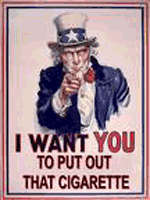
Uzbek society is a fanciful blend of religious and cultural norms, traditions and codes, some of which root in the Soviet past, whereas others come with growing Western influence of the present. Uzbek people are known for their hospitality. They are happy to have guests in their homes. Such an invitation will be followed by generous feast and drinks. Local people always serve as many dishes as they have in stock. What is often seen by visitors as an unreasonable waste of food is in reality the sign of respect for the valuable guest. It does not matter whether you eat it all or not, the rule is that plates should never be empty and guests should feel not in the least embarrassed by possible shortage of food. Unlike some countries, it is not accepted to drink beer or other alcohol drinks on the street, though foreign guests can get away with it. Smoking in public places or on public transport is not prohibited, but a woman with a lit cigarette on the street may provoke an unwanted reaction. Women generally enjoy equal rights and are free to behave same way as men. But it is a national tradition that girls are brought up in the spirit of modesty and conservatism so they choose an appropriate behavior for themselves.
Language
The Uzbek language belongs to the family of Turkic languages and during the 20th century a series of linguistic reforms was carried out to replace the initial Arabian alphabet by the Latin script, then by Cyrillic during the Soviet time. After independence in 1991 Latin letters were re-introduced and are in effect now. Russian is used almost everywhere too, in some regions Tajik is prevalent. These days many people, especially the youth, speak some English and the passers-by on the street will do their best to show direction if asked. Knowledge of a few Uzbek words will be appreciated and taken as a sign of respect.
SIGHTSEEING
Excursions
Hotels and travel agencies arrange guided group tours in cities of Uzbekistan, in several languages, including English, German, French, Spanish, Italian and Japanese. With a little more effort, you may find freelance guides and/or interpreters for individual trips. Usually admission charges or so called entrance tickets for historical monuments and museums are considerably more expensive for visitors than for locals but the rates are still within or lower than European or American standards. Small children are not charged. Students and schoolchildren are entitled to discounts.
Photos
Using cameras and videos in museums and monuments is charged extra to the entrance ticket. In some museums flashes are prohibited.
Open Hours
Most sights are open standard hours 10a.m. to 6p.m. with no break for lunch. One day per week and one day at the end of each month they are closed for major clean-up. These days may vary for different museums and sights so visitors may need to phone to check.
SAFETY
Security
Uzbekistan is a country of low crime. Petty crime should be the only concern for tourists, and even this is easily avoided if the usual precautions are taken. It is advised to make copies of your passports and visas. Medical insurance is essential as local health care facilities are poorly complying with Western standards, and English-speaking service (International Clinic in Tashkent) or medical evacuation are very expensive.
Protecting Your Property
Simple rules should be observed when you walk on the streets, for example, not displaying large sums of money; carrying cash in a safe money belt; using hotel safes as much as possible for keeping passports, tickets and valuables (this is applied to visitors in groups, individuals may need to have their passports at hand all the time). You should avoid the local gypsies (so called lyullih) who gather near big sights and beg. If they approach, you should not stop for them and keep a firm hold of your possessions. If you have your property stolen, report it to the local police for insurance policies. Visitors in groups should fully rely on local ‘through’ guides to deal with the police.
Personal Safety
The greatest danger faced by foreigners is that posed by pickpockets and petty thieves. Like in any country, it is advisable to hand over belongings that are demanded with menace.
Women are unlikely to encounter sexual harassment, though they should ignore curb-crawlers and avoid taking a taxi alone at night. They should not go out alone late at night either.
There is a certain threat to people on the street posed by careless drivers. Visitors, especially when in groups, should carefully follow instructions of their guide while crossing roads, especially major motorways.
Police
All guests (except for tourist groups) are recommended to have their passports on them at all times. If stopped by the police, you will have to show them the passports and follow them to the police station should they demand it. For such cases it is strongly desirable to have phone numbers of your respective Embassy and the travel company/person who sponsored your visa. It is also advisable to keep the above-mentioned travel company or person informed on your whereabouts and future plans. At times, Uzbek authorities announce that some of the provinces or districts are either closed or a limited access for visitors is in effect there. Such measures are usually taken to ensure safety of visitors. Uzbekistan is a country with semi-transparent borders, some neighboring countries pursue different security policies and standards. Official recommendations, therefore, need to be taken seriously. It is prohibited to take pictures of airports, railway and subway stations. Also, it is not recommended to take photos while crossing border controls or moving through railway bridges.
MAINTAINING HEALTH
Pharmacies
The once-underdeveloped market of medicines and medical appliances have seen tremendous growth in the recent years, especially in Tashkent, and now a great variety of medicines, both foreign and locally made is available in pharmacies (DORIXONA). Usually medicines are provided with instructions in Russian and in the original language of the manufacturer. Almost all medications, except for strong tranquillizers and drug containing substances, can be bought over the counter, so prescriptions are not necessary. Staff of pharmacies are trained professionals, so they can advise alternative drugs. In case you have very specific requirements, such as insulin, you should bring a sufficient supply for your stay.
Medical care
There is a number of clinics which specialize in dealing with foreigners in Tashkent. They provide a full range of medical services, from dental care to medical evacuation. Their charges may be fairy high but they have English-speaking doctors and can deal competently with emergencies. For those in need of immediate attention, Casualty Departments of ordinary clinics and hospitals can be used. You may need assistance of your guide or someone from your hotel to help with doctors, particularly, in Uzbek provinces where few doctors speak foreign languages. If you are taken to a local hospital and need further treatment, it is advisable to contact either your Embassy/consulate or one of the above medical centers. They can arrange to have you transported or they can oversee your treatment in the hospital.
Health Precautions
In Uzbekistan hepatitis is endemic, so inoculation is advisable before visiting the country.
Uzbekistan is now a busy economic and political center of Asia, and the general precautions against HIV and other sexually transmitted diseases must be taken.
Directory
Fire 01 (calls free from city pay phones)
Police 02 (calls free from city pay phones)
Ambulance 03 (calls free from city pay phones)
Medical services (Tashkent)
International Clinic
700012, 6, Minglar Str.
tel: +998-71-1206092, 1206093
Doctor-Service
700096, 2, Peoples’ Friendship (Khalklar Dustligi) Ave.
tel: +998-71-774810, 774876, 774421
MDS-Service
110/3, Botkin Str.
tel: +998-71-1697985, 080
email: medicine@mds.co.uz
OTHER USEFUL INFORMATION
Embassies and Consulates
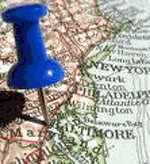 Those who intend to stay in Uzbekistan for longer than a month are advised to register with their Embassy/consulate. If visitors are hospitalized, robbed, imprisoned or otherwise rendered helpless, consular officials will help make arrangements, find an interpreter or at least offer advice. Also, they can re-issue passports or, in some emergency cases, provide money to get visitors home.
Those who intend to stay in Uzbekistan for longer than a month are advised to register with their Embassy/consulate. If visitors are hospitalized, robbed, imprisoned or otherwise rendered helpless, consular officials will help make arrangements, find an interpreter or at least offer advice. Also, they can re-issue passports or, in some emergency cases, provide money to get visitors home.
Disabled Travelers
Uzbekistan has few facilities for the disabled. Transport is difficult to access, entrances have steps and narrow doors. There are rarely public lifts. Metro entrances and underpasses in Tashkent, as well as some of office main entrances are equipped with rails for wheel-chairs, but they only represent an intention, rather than a working facility. It takes real determination for disabled travelers to get around.
Student Travelers
Students and youth in general enjoy certain privileges on public transport and museums. Also, Uzbek Airways (Uzbekistan Havo Yullary) offers rebates for young people under 28.
International students cards of all kinds are usually not accepted for discounts.
Traveling With Children
In Uzbek families children are seen as the gift of God, therefore travelers in the company of under-teens are likely to attract a good deal of attention and many compliments. Children are usually treated with special care and in big cities, e.g. Tashkent, there is a number of play parks, the Aqua Park, Tashkent Land, etc. In museums and public transport under-fives are not charged. Schoolchildren pay the full price on transport but pay a reduced price at museums.
Electrical Appliances
The current is 220V, 50 Hz, AC two pin plugs. Sockets in some of the old buildings do not take modern European plugs which have slightly thicker pins. To deal with this, adaptors are widely available locally. With American appliances you will need a 220:110 current adaptor which is a little more difficult to find.
Public Toilets
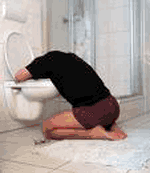 Many cafes and bars have no toilet facilities and in general the rather unhygienic public toilets are best avoided. It would be much better to go to the nearest hotel, or, if there is no alternative, to use pay toilets. It should be noted that toilet facilities are scarce even in Tashkent, not to mention provincial capitals or the areas along the motorways. In this context, the WC facilities in on-the-way choy-khonas (tea cafes) and petrol stations should be made use of. Or, if you drive in a coach and totally lack an alternative, you may use what the locals call five-star toilets, i.e. bushes along the road.
Many cafes and bars have no toilet facilities and in general the rather unhygienic public toilets are best avoided. It would be much better to go to the nearest hotel, or, if there is no alternative, to use pay toilets. It should be noted that toilet facilities are scarce even in Tashkent, not to mention provincial capitals or the areas along the motorways. In this context, the WC facilities in on-the-way choy-khonas (tea cafes) and petrol stations should be made use of. Or, if you drive in a coach and totally lack an alternative, you may use what the locals call five-star toilets, i.e. bushes along the road.

Follow these tips and the International Tourism in Uzbekistan site will help you!
